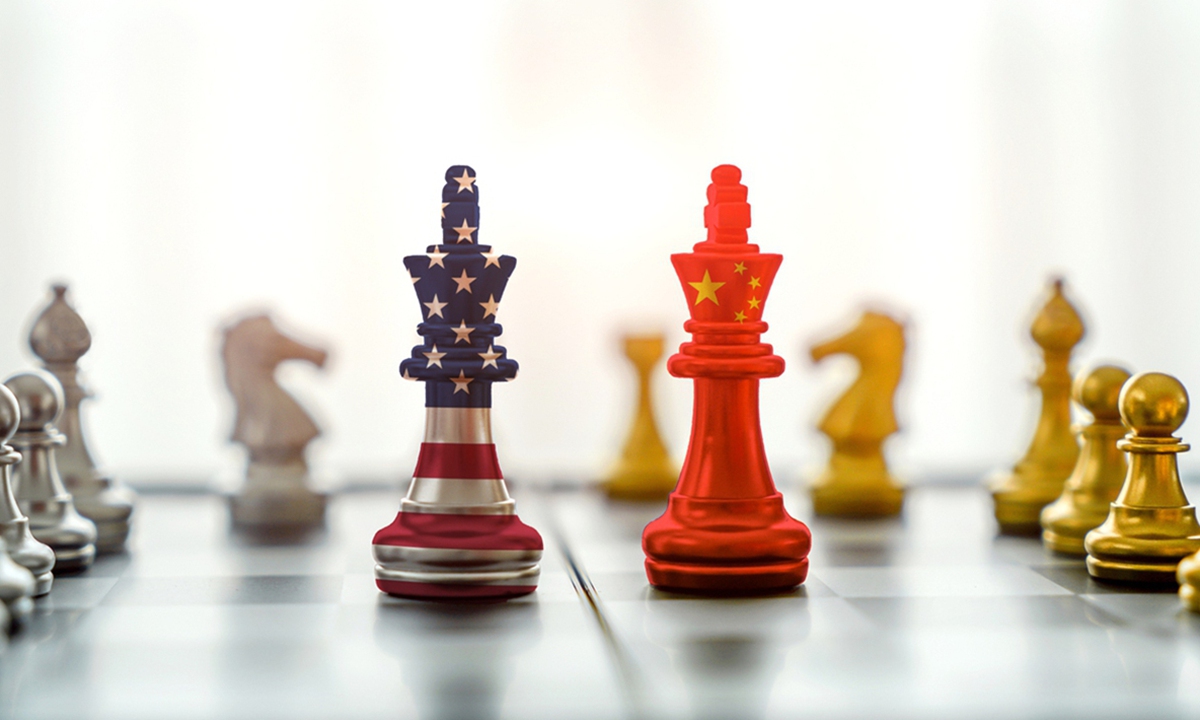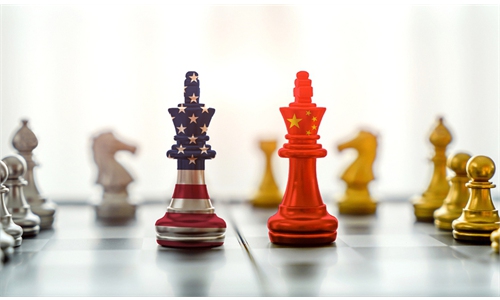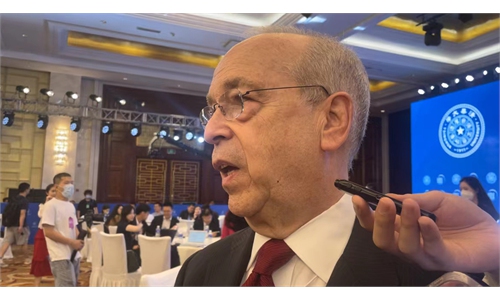US ‘friendly’ overtures hard to cover real intention to ‘de-China,’ says analyst after CIA chief refutes ‘decoupling’
‘De-risking’ essentially ‘de-China’ for Washington

China US
Although the US has made a series of "friendly" overtures toward China recently, Chinese analysts said that the rhetoric emanating from some senior US officials is not matched by their deeds, and the "de-risking" narrative they chant is still a ruse to "de-China" in certain US sectors, including investment, technology and industry layout, and induce its allies to follow suit.
US Central Intelligence Agency (CIA) director William Burns said during a lecture at the Oxfordshire-based Ditchley Foundation - a nonprofit organization in the UK that focuses on the US-UK relations - on Saturday that "decoupling" from China would be "foolish" given the deep economic interdependence, so the US should "de-risk" and try to diversify its supply chains.
While some dovish US politicians have become increasingly vocal about their realization that "decoupling" is unrealistic and are trying to erase the word from policy documents and speeches, some hawkish US forces continue to push for "decoupling" under the guise of more moderate terms such as "de-risking" - just a different name for the same strategy, which is to contain China's economic and technological rise, according to analysts.
Li Haidong, a professor at the China Foreign Affairs University, said that abandoning the "decoupling" narrative reflects that in the practice of China policy under the Biden administration, Washington has realized that a harsh "decoupling" harms the US economy and would isolate the superpower with little support from its allies.
But there is a cognitive gap between the US and its allies toward the so-called de-risking, Li noted. For the US, its goal is to separate certain technologies, investment and some industrial layout from the Chinese market. At the same time, it also wants its allies follow suit.
"De-risking for the US is to 'de-China' in essence," Li said. But for major European countries, de-risking is to make the supply chain and some related industries more resilient, he said.
Although Burns sent a positive signal toward China in his speech in the UK, it was not more than "lip service" which is unconvincing considering the series of China-containing measures that Washington issued recently, some Chinese analysts stated.
Last month the US government added 43 entities, including 31 in China, to its export control list, known as the "Entity List," accusing these entities of providing training to Chinese military pilots and other activities that are perceived to threaten US national security.
In another development, US President Joe Biden on Friday accepted the Letter of Credence of new Chinese Ambassador to the US Xie Feng, in the Oval Office of the White House.
According to Xie, it is hoped that the US will work with China in the same direction, earnestly act on the common understandings reached in Bali, Indonesia in late 2022 between the two heads of state, and explore the right way for the two countries to get along in the new era, so as to stabilize and bring the China-US relationship back to the right track.
Some analysts noted that Biden accepted Xie's credentials very quickly, and the meeting was arranged in the Oval Office of the White House, showing a "gesture of friendship and respect" that Biden tried to express to China.
This again reveals that Biden administration's approach to China is complex - Biden wants to contain China's development and expand US influence, but he hopes the relationship with China will not be too confrontational. He wants to make bilateral relations "more or less tolerable," provided China compromises more, an Chinese analyst said on condition of anonymity.
A further confrontation with the US is not good for China either, but it is obviously not possible to submit to the strategic pressure of the US, otherwise China will lose a lot of national interests, the above-quoted analyst noted.
Li criticized that the US lacks the consciousness of introspection and empathy in its China policy, and to make China compromise is actually a hegemonic logic that tries to use its strength to overwhelm China, but that this tactic will not work.
In June, US Treasury Secretary Janet Yellen has warned of "disastrous" consequences for the US to decouple from China, while also claiming that the World Bank and the IMF can be used as "an important counterweight" to China.
The remarks offered the latest sign of the US' two-faced approach toward China, where it seeks to minimize risks and consequences, but continues to intensify its crackdown against China, Chinese analysts said, stressing that the US containment strategy won't change, even though it has been forced to rethink certain radical tactics and ease tension with China.




